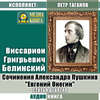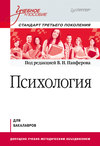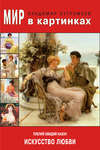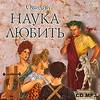Loe raamatut: «Fasti»
PUBLII OVIDII NASONIS FASTORUM
LIBRI VI
OVID'S FASTI;
NOTES AND AN INTRODUCTION,
BY
THOMAS KEIGHTLEY,
Author of The Mythology of Ancient Greece and Italy, History of Greece,
History of Rome, etc.
Sex ego Fastorum scripsi, totidemque libellos;
Cumque suo finem mense volumen habet.
OVID. TRIST. II. 549.
PREFACE
No one, I should think, who has even done nothing more than look into Ovid's Fasti, will refuse his assent to the following words of Hercules Ciofanus, one of the earliest editors of this poem: Ex omnibus, says he, veterum poetarum monumentis nullum hodierno die exstat opus, quod, aut eruditione aut rebus quae ad Romanam antiquitatem cognoscendam pertineant, hos Ovidii Fastorum libros antecellat. In effect we have here ancient Roman history, religion, mythology, manners and customs, and moreover much Grecian mythology, and that portion of the ancient astronomy which regards the rising and setting of the different constellations. These altogether form a wide field of knowledge; and in my opinion there is not, in the whole compass of classical literature, a work better calculated to be put into the hands of students.
Accordingly the Fasti are read at some of our great public schools and at several of the private ones, and I have lately had the gratification of seeing this very edition adopted at one of the most eminent of the great schools. The name of the master of that school, did I feel myself at liberty to mention it, would be a warrant for the goodness, at least the relative goodness, of the present edition.
At the same time I will candidly confess that the work falls far short of my own ideas of perfection in this department of literature. Circumstances, which it is needless to mention, caused it to be executed in a very hurried manner and without the necessary apparatus of books. It was in fact undertaken, written, and printed in little more than two months. This is mentioned in explanation of, not in excuse for, its defects—for no such excuse should be admitted.
The text is that of Krebs, the latest German editor; from which however I have occasionally departed, especially in the punctuation. In the notes will be found the most important various readings of the fifty-eight MSS. of this poem which have been collated. I have also adopted the Calendar of Krebs' edition, as being on the whole the best, and as its copiousness enables it to supply the place of arguments to the several books.
In the Introduction I have given such matter as the student should be acquainted with previous to commencing the poem. The study of it will, I trust, be found to be of advantage. My plan in writing the notes was, to be as concise as was compatible with a full elucidation of the meaning of the author. While therefore no difficult passage is left without at least an attempt at explaining it, I have avoided swelling out my notes with mythic or historic notices and narrations which may be found in the Classical Dictionary. I suppose, for example, the student to know, or to be able easily to discover, who Hercules and Romulus were, and where Mount Haemus lies. Perhaps it would have been better if the notes on the first two or three books had been more copious; those on the three last are, I believe, sufficiently so.
Many references will be found to Niebuhr's History of Rome, and to my own Mythology of Greece and Italy. For those to the former work I may perhaps be entitled to thanks, as leading the attention to the noble discoveries of the Bacon of history, as he is justly styled by Dr. Arnold. This last eminent scholar is himself engaged on a History of Rome, of which apart has appeared, and which promises to form a permanent portion of our historic literature. In my own epitome of the Roman history sufficient information on the portions of it alluded to will be found by those who have not access to the work of Niebuhr. For the accuracy and fidelity of the translation of Niebuhr's history by my friends Hare and Thirlwall, I can pledge myself without any reservation. It may be useful here to add, that the dates in the following notes are those of the Varronian chronology, and not the Catonian as in my History of Rome.
With respect to my Mythology, I may boldly say it is the only work on the subject in our language. Even the first edition (which is the one referred to in the notes) received the approbation of the most competent judges, and the second has been so much enlarged and improved as to form in reality a new work. At the same time, I do not enjoin the study of it: the references were merely intended for the use of those who desire something more than the ordinary superficial acquaintance with mythology.
The errata, or typographical errors, are more numerous than they should have been; but a complete list of them will be found on the page opposite the commencement of the poem. There are, however, two or three errors of a graver kind, which I may here rectify.
The reader will observe perhaps with surprise how completely I mistook the sense of Lib. II. vv. 619, 620; though it is so obvious. The passage might possibly bear the sense which I have given it; but it surely is not what the poet meant. I was led into the error by v. 566. My interpretation certainly gives the more poetical sense, and it is curious enough that I have since met with the very same idea in one of the plays of our old dramatist Ford:
"These holy rites perform'd, now take your times To spend the remnant of the day in feasts. Such fit repasts are pleasing to the saints Who are your guests, though not with mortal eyes To be beheld."
In the note on Lib. III. v. 845, the remark on furta is trifling; for that word is equivalent to fures, as servitia is to servi, operae to operarii, etc., such being one of the peculiarities of the Latin language. The time of the death of the Fabii is given incorrectly in the note on Lib. II. v. 195: it should be "the Quinctilis of the year 277." There is, I believe, no other error of any importance. Should another edition be called for at any future time, I shall endeavour to make it more complete,
T. K.
Tunbridge Wells, Aug. 30, 1839.
INTRODUCTION
§ 1. OF THE RISING AND SETTING OF THE STARS—§ 2. OF THE ROMAN YEAR —§ 3. OF THE ROMAN MONTHS AND DAYS—§ 4. OF THE ROMAN FASTI—§ 5. OF OVID'S POEM ON THE FASTI—§ 6. OF THE EDITIONS OF THIS POEM.
§ 1.
Of the Rising and Setting of the Stars.
The attention of a people who, like the ancient Greeks, dwelt in a region where, during a great part of the year, the night might be passed in the open air, and no mists or clouds obscured the heaven, must have been early drawn to those luminous points which are scattered over it in such profusion. They must have early learned to distinguish various clusters of them, and thence to give them appropriate names. Accordingly, in the most ancient portion of Grecian literature, the Homeric and Hesiodic poems, we find various groupes of the stars designated by peculiar names. Such are Orion, the Hyades, the Pleiades, the Bear or Wain, the Dog and the Ploughman or Bear-ward (Boötes or Arcturus). The case was the same in the East; we meet in the book of Job (c. ix. 9.) names for the Pleiades, Hyades and Orion, and (xxvi. 14.) the constellation named the Great Serpent. The people of ancient Italy appear to have done the same: the Latin name of the Pleiades was Vergiliae, that of the Hyades Suculae, the seven stars, which form the constellation of the Great Bear, were named by them the Septem Triones, or Seven Oxen; for, as they go round and round the pole without ever setting, the analogy between them and the oxen, which trod out the corn by going round and round the area, or threshing-floor, was an obvious one. Doubtless, the brilliant constellation Orion, had a peculiar Latin name, which has not come down to us; of the others, none but Greek appellations occur.
A very short acquaintance with the face of the stellar heaven sufficed to shew, that it did not always remain the same. During a part of the year Orion flamed in full magnificence on the sky, and, to the eye of the Grecian herdsman and hunter, he and his Dog pursued the Bear, who kept watching him while the Pleiades (Peleiades, pigeons) were flying before him; at another season the sky was destitute of this brilliant scene. It was soon observed that the stars made 'their exits and their entrances' at regular periods, corresponding with the changes which took place in the course of nature on earth, and these coincidences were marked and employed for agricultural purposes. A people who have no regular scientific calendar, always contrives a natural one, taken from celestial or terrestrial appearances. Thus the North American Aborigines designate times and seasons by the flowering of certain plants; the ancient Greeks appear to have done something of the same kind, for one of Hesiod's designations of a particular season is, when the thistle is in blossom; we ourselves call the first season of the year the Spring, (i.e. of plants,) and our Transatlantic brethren term the autumn, the Fall (of the leaves).
The Greeks, however, seem early to have seen the superior accuracy and determinateness of the celestial phenomena. In the didactic poem of Hesiod, this mode of marking the times of navigation and of rural labours is frequently employed, and its use was retained by the countryfolk of both Greece and Italy far into the time of the Roman empire. Those who wrote on rural subjects or natural history, employed it; we meet it in Aristotle, as well as in Pliny and Columella.
When intercourse with Egypt and Phoenicia had called the thoughts of the Greeks to natural science, the rude astronomy of their rustic forefathers became the subject of improvement. The name of Thales is, as was to be expected, to be found at the head of the cultivators of this science. He is said to have been the first who taught to distinguish between the real and apparent rising and setting of a constellation; which implies a knowledge of spheric astronomy. His example was followed and observation extended by others, and as rain, wind, and other aërial phenomena were held to be connected with the rising and setting of various signs, the times of their risings and settings, both apparent and real, were computed by Meton, Eudoxus, and other ancient astronomers. The tables thus constructed were cut on brass or marble, and fixed up (whence they were called [Greek: parapaegmata],) in the several cities of Greece, and the peasant or sailor had only to look on one of these parapegmata, to know what sign was about to rise or set, and what weather might be expected. Without considering the difference of latitude and longitude, the Romans borrowed the parapegmata, like every thing else, from the Greeks. The countrymen, as we learn from Pliny (xviii. 60, 65,), ceased to mark the stellar heaven, a Kalendarium rusticum siderale, (Colum. ix. 14) taught him when the signs rose and set, and on what days he was to expect sacrifices and festivals. When Virgil (G. I. 257.) says,
Nec frustra signorum obitus speculamur et ortus,
Temporibusque parem diversia quattuor annum.
it is, (as Voss observes,) more probable that it is one of these calendars, and not the actual heaven that he means.
Before the time of Thales it was, of course only the visible and apparent risings and settings of the signs that were the subject of observation. But astronomers now learned to distinguish these phenomena into three kinds. These they termed the cosmic, acronych, and heliac risings and settings. The cosmic rising or setting ([Greek: kosmikos epitolae], or [Greek: dusis],) was the true one in the morning; the acronych ([Greek: akronychos]1), prima nox, is evening, the beginning (one end) of the night, the true one in the evening; the heliac, ([Greek: haeliakos]) the apparent rising in the morning or setting in the evening. A star was said to rise or set cosmically, when it rose or set at sun-rise; it rose or set acronychally, when it rose or set at sun-set; it rose heliacally, when in the morning it just emerged from the solar rays, it set in the same manner, when in the evening it sank immediately after him. Two general observations may be made here. 1. In the morning the true rising precedes the apparent one, perhaps several days. 2. In the evening the apparent setting precedes the real one. To illustrate this. Let us suppose it 'spring time when the sun with Taurus rides,' the Hyades which are in the head of Taurus will rise with the sun, but lost in his effulgence they will elude our vision; at length when in his progress through the Tauric portion of the ecliptic, he has left them a sufficient distance behind him, their rising (as his motion in the ecliptic is contrary to his apparent diurnal motion,) will precede his by a space of time which will allow them to be seen. The real evening setting of a star, is its sinking at the same moment with the sun below the horizon, its heliac setting, is its becoming visible as he is setting and then disappearing, that is ceasing to be visible after sun-set, in the western part of the hemisphere. Thus the sun and the Hyades may actually set together several days before they become sufficiently elongated from him, to admit of their being seen before they set.
There are thus three risings, and three settings of a star, namely:—
The true morning rising, i. e. the cosmic.
The apparent morning rising, i. e. the heliac.
The true evening rising, i. e. the acronych.
The true morning setting, i. e. the cosmic.
The true evening setting, i. e. the acronych.
The apparent evening setting, i. e. the heliac.
Of these, the one which is most apt to engage the attention, is the acronych or true evening rising, that is the rising of the star at the eastern verge of the horizon, at the moment the sun is sinking on the western side. It is of this I think, that Hesiod always speaks. The attention of the constructors of parapegmata does not seem to have been directed to the risings of the stars at different hours of the night.
§ 2.
Of the Roman Year.
Nothing is better established by competent authority, than that two kinds of year were in use among the ancient Romans, the one of ten, the other of twelve months. In the usual spirit of referring their ancient institutions to those whom they regarded as their first kings, the ten-month year was ascribed to Romulus, the improved one of twelve months to Numa. This was the current opinion, such as we find it in the following poem; some ancient writers, however, such as Licinius Macer and Fenestella, to whom we may perhaps add Plutarch, rejected the ten-month year as a mere fiction. Their opinion has been adopted by the great Joseph Scaliger, who asserts that the Roman year always consisted of twelve months. Both opinions may, I think, be maintained, the Romans may, from the beginning of their state, have had a year of twelve months, which I would call the Roman year, and yet have used along with it a year of ten months, which, for reasons which will presently appear, I call the Etruscan year. I will commence by showing that a year of ten months was in use even in the time of the republic.
Ten months was the term for mourning; the fortunes of daughters, left by will, were to be paid in three instalments of ten months each; on the sale of olives, grapes on the vine, and wine in the vessels, ten month's credit was given; the most ancient rate of interest also supposes a year of ten months. It may further be noted, that even Scaliger, who rejected this year, could not avoid remarking, how singular it was, that the household festivals of the Saturnalia and the Matronalia should be the one at the end of December, the other at the beginning of March. He did not perceive that this would seem to indicate a time when, at the end of a year of ten months, these two festivals were one, and male and female slaves together enjoyed the liberty of the season.
These are mere presumptions; a nearer approach can be made to certainty. There was nothing the ancient inhabitants of Italy more carefully shunned, than drawing down the vengeance of the gods, by even an involuntary breach of faith. It was also the custom, especially of the Etruscans, to make peaces under the form of truces, for a certain number of years. Now we find that, in the year 280, a peace was made with Veii for 40 years. In 316 Fidenas revolted and joined Veii, which must then have been at war with Rome, but 316-280, is only 36, yet the Romans, though highly indignant, did not accuse the Veientines of breach of faith. Suppose the truce made for 40 ten-month years, and it had expired in the year 314. Again, in 329, a truce was made for twenty years, and Livy says that it was expired in 347, but 347-329 is 18 not 20. Let the year have been, of ten months, and the truce had ended in the year 346. These are Etruscan cases, but we find the same mode of proceeding in transactions with other nations; a truce for 8 years was made with the Volscians in 323, and in 331 they were at war with Rome, without being charged with perjury.
This ten-month year was that of the Etruscans who were the most learned and cultivated people of the peninsula. As the civil years of the Latin and other peoples were formed on various principles, and differed in length, the Romans at least, if not the others, deemed it expedient to use, in matters of importance, a common fixed measure of time. On all points relating to science and religion they looked up to the Etruscans; it was, therefore, a matter of course that their year should be the one adopted.
This Etruscan year consisted of 304 days, divided into 38 weeks of eight days each. It is not absolutely certain that it was also divided into months, but all analogy is in favour of such a division. Macrobius and Solinus say, that it contained six months of 31, and four of 30 days, but this does not seem to agree with weeks of eight days; perhaps there were nine months of four weeks and one of two, or more probably eight of four weeks and two of three.2 This year, which depended on neither the sun nor the moon, was a purely scientific one, founded on astronomical grounds and the accurate measurement of a long portion of time. It served the Etruscans as a correction of their civil lunar year, the one which was in common use, and, from the computations which have been made, it appears that, by means of it, it may be ascertained that the Etruscans had determined the exact length of the tropical or solar year, with a greater degree of accuracy than is to be found in the Julian computation.
Like the Etruscans, the Romans employed for civil purposes a lunar year, which they had probably borrowed also from that people. This year, which, of course, like every year of the kind, must have consisted of twelve months, fell short of the solar year by the space of 11 days and 6 hours, and the mode adopted for bringing them into accordance was to intercalate, as it was termed, a month in every other year, during periods of 22 years, these intercalated months consisting alternately of 22 and 23 days. This month was named Mercedonius. In the last biennium of the period no intercalation took place. As five years made a lustre, so five of these periods made a secle, which thus consisted of 110 years or 22 lustres, and was the largest measure of time among the Romans.3
The care of intercalating lay with the pontiffs, and they lengthened and shortened the year at their pleasure, in order to serve or injure the consuls and farmers of the revenue, according as they were hostile or friendly toward them. In consequence of this, Julius Caesar found the year 67 days in advance of the true time, when he undertook to correct it by the aid of foreign science. From his time the civil year of the Romans was a solar, not a lunar one,4 and the Julian year continued in use till the Gregorian reformation of the Calendar.
We thus see that the civil year of the Romans always consisted of twelve months, and that a year of ten months was in use along with it in the early centuries of the state, which served to correct it, and which was used in matters of importance.5
§ 3.
Of the Months and Days of the Roman Year.
When it was believed that the year of 304 days was the original civil year of the Romans, and evidence remained to prove that the commencement of the year had, in former times, been regulated by the vernal equinox, instead of the winter solstice, it seemed to follow, of course, that the original year of Romulus had consisted of but ten months. The inconvenience of this mode of dividing time must have been thought to have appeared very early, since we find the introduction of the lunar year of twelve months ascribed to Numa, who is said to have added two months to the Romulian year, which, it would thus appear, was regarded as having been a year of ten lunar months. This placing of the lunar twelve-month year in the mythic age of Rome, I may observe, tends to confirm the opinion of its having been in use from the origin of the city.
The ancient Israelites had two kinds of year, a religious and a civil one, which commenced at different seasons. Their months also originally, we are told, proceeded numerically, but afterwards got proper names. As the month Abib is mentioned by name in the book of Deuteronomy, I hazard a conjecture, that the civil and religious years had coexisted from the time of Moses, and that the months of the former had had proper names, while those of the latter proceeded numerically. Is there any great improbability in supposing the same to have been the case at Rome? The religious year of ten months, as being least used, may have proceeded with numerical appellations from its first month to December, while the months of the civil year had each their peculiar appellation derived from the name of a deity, or of a festival. It is remarkable that the first six months of the year alone have proper names; but the remaining ones may have had them also, though, from causes which we are unable to explain, they have gone out of use, and those of the cyclic year have been employed in their stead.6
The oriental division of time into weeks of seven days, though resulting so naturally from the phases of the moon, was not known at Rome till the time of the emperors. The Etruscan year, as we have seen, consisted of weeks of eight days, and in the Roman custom of holding markets on the nundines, or every ninth day, we see traces of its former use, but a different mode of dividing the month seems to have early begun to prevail.
In the Roman month there were three days with peculiar names, from their places with relation to which the other days were denominated. These were the Kalends (Kalendae or Calendae,) the Nones, (Nonae) and the Ides (Idus or Eidus). The Kalends (from calare, to proclaim,) were the first day of the month; the Nones (from nonus, ninth) were the ninth day before the Ides reckoning inclusively; the Ides, (from iduare, to divide,) fell about, not exactly on, the middle of the months. In March, May, July and October, the Ides were the 15th, and, consequently, the Nones the 7th day of the month; in the remaining months the Ides were the 13th, the Nones the 5th. The space, therefore, between the Nones and Ides was always the same, those between the Kalends and Nones, and the Ides and Kalends, were subject to variation. Originally, however, it would appear, the latter space also was fixed, and there were in every month, except February, 10 days from the Ides to the Kalends, The months, therefore, consisted of 31 and 29 days, February having 28. In the Julian Calendar, January, August and December were raised from 29 to 31 days, while their Nones and Ides remained unchanged. It was only necessary then to know how many days there were between the Kalends and Nones, as the remaining portions were constant. Accordingly, on the day of new moon, the pontiff cried aloud Calo Jana novella7 five times or seven times, and thus intimated the day of the Nones, which was quite sufficient for the people.
We thus see that the Roman month was, like the Attic, divided into three portions, but its division was of a more complex and embarrassing kind; for while the Attic month consisted of three decades of days, and each day was called the first, second, third, or so, of the decade, to which it belonged; the days of the Roman month were counted with reference to the one of the three great days which was before them. It is an error to suppose that the Romans counted backwards. Thus, taking the month of January for an example, the first day was the Kalends, the second was then viewed with reference to the approaching Nones, and was denominated the fourth before the Nones; the day after the Nones was the eighth before the Ides; the day after the Ides, the nineteenth before the Kalends of February.
The technical phraseology of the Roman Calendar ran thus. The numeral was usually put in the ablative case, and as the names of the months were adjectives, they were made to agree with the Kalends etc. or followed in the genitive, mensis being understood. Thus, to say that an event occurred on the Ides of March, the term would be Idibus Martiis, or Idibus Martii (mensis). So also of the Kalends and Nones, for any other day the phrase would be, for example, tertio Kalendas, i. e. tertio (die ante) Kalendas or tertio (die) Kalendarum, The day before any of the three principal days was pridie (i. e. priore die) Kalendas or Kalendarum, Nonas or Nonarum, Idus or Iduum.
Another mode of expression, was to use a preposition, and an accusative case. Thus, for tertio Nonas they would say ante diem tertium Nonas, which was written a. d. III. Non. This form is very much employed by Livy and Cicero. It was even used objectively, and governed of the prepositions in and ex. We thus meet in ante tertium Nonas, and ex ante diem Nonas, in these authors. Another preposition thus employed is ad, we meet ad pridie Nonas.
As the Romans reckoned inclusively, we must be careful in assigning any particular day to its place in the month, according to the modern mode of reckoning. We must, therefore, always diminish the given number by one, or we shall be a day behind. Thus, the 5th of June being the Nones, the 3d is III. Non. but if we subduct 3 from 5 we get the 2d instead of the 3d of the month. The rule then is, as we know the days on which the Nones and Ides fall in each month, to subduct from that day the Roman number minus 1, and we have the day of the month. For days before the Kalends, subduct in the same manner from the number of days in the month.
The days of the Roman year were farther divided into fasti, nefasti and endotercisi,8 or intercisi, which were marked in the Kalends by the letters F. N. and EN. The dies fasti were those on which courts sat, and justice was administered; they were so named from fari to speak, because on them the Praetor gave judgement, that is spoke the three legal words, Do (bonorum possessionem), Dico (jus), Addico (id de quo quaeritur); the dies nefasti, were festivals, and other days on which the courts did not sit; the dies intercisi were those days, on only a part of which justice might be administered. Thus, we are told that some holidays were nefasti, during the time of the killing of the victim, but fasti, inter caesa et porrecta (exta), again nefasti while the victim was being consumed on the altar.
Manutius, by merely counting up the number of the dies fasti in the Julian Calendar, found that they were exactly 38 in number. This strongly confirms what has been said above, respecting the division of the cyclic year into 38 weeks, and is one among numerous instances of the pertinacity with which the Romans retained old forms and names, even when become no longer applicable; for as 38 days were quite insufficient for the business of the Forum, a much larger number of other days, under different appellations, had been added to them long before. The making the market days fasti was, we are told,9 the act of the consul Hortensius.
§ 4.
Of the Roman Fasti.
The Roman patricians derived from their Tuscan instructors, the practice, common to sacerdotal castes, of maintaining power by keeping the people in ignorance of matters which, though simple in themselves, were of frequent use, and thence of importance. One of the things, which such bodies are most desirous of enveloping in mystery and confining the knowledge of to themselves, is the Calendar, by which religious rites and legal proceedings are regulated. Accordingly, for a long time, the Roman people had no means of learning with certainty what days were fasti and what not, but by applying to the pontiff, in whose house the tables of the fasti were kept, or by the proclamation which he used to make of the festivals which were shortly to take place. As we have seen above, the knowledge of the length of the ensuing month could only be obtained in the same manner. This, and the power of intercalating, gave a highly injurious degree of power to the pontiffs.
Accordingly, nothing could exceed the indignation of the senate when, in the year 440, Flavius, the clerk or secretary of App. Claudius, as a most effectual mode of gaining the popular favour, secretly made tables of the Calendar and set them up about the Forum.10 Henceforth the dies fasti and nefasti, the stative festivals, the anniversaries of the dedications of temples, etc. were known to every one. The days of remarkable actions, such as the successes and reverses of the arms of the republic, were also noted. Copies for the use of the public and individuals were multiplied; the municipia and other towns of Italy, as the fragments which have been discovered shew, followed the example of Rome, and the colonies, in this as in every thing else, presented the mother-city in little. The custom was transmitted to modern Europe, and, in the Calendar part of our own Almanacks, we may see a copy of those Fasti, which once formed a portion of the mysterious treasures of the patricians of ancient Rome.
Certus undenos decies per annosOrbis ut cantus referatque ludos.HORACE CAR. SEC. 21.
[Закрыть]



















